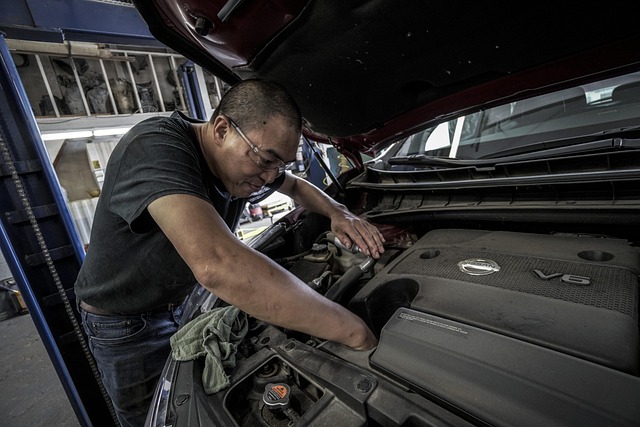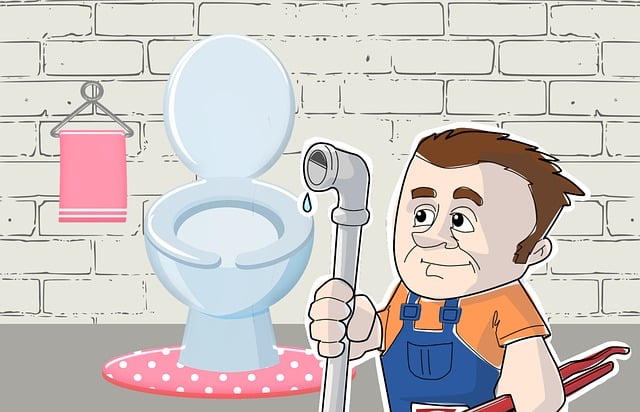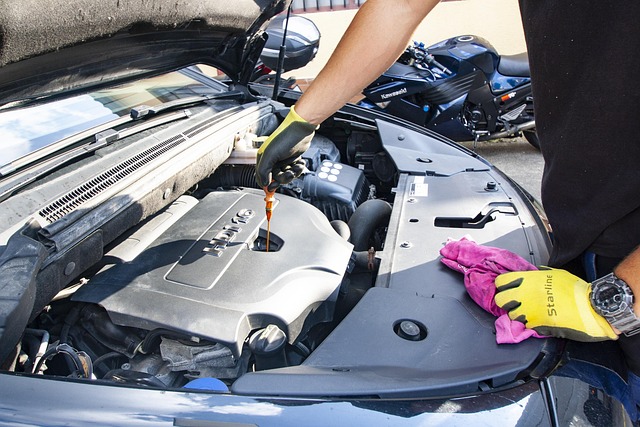Accurate translations of UK maintenance manuals are vital for safety, efficiency, and compliance. Professional services, combining human expertise with advanced technology, ensure clear instructions accessible globally while adhering to local regulations. Rigorous quality assurance processes, industry experience, and specialized knowledge are crucial for reliable translation services, enhancing manual comprehension and reducing errors. Selecting the right provider involves evaluating linguistic skills, technical domain knowledge, and understanding of critical information. Legal considerations are paramount to maintain document validity across languages. Embracing digital transformation and localization trends ensures impactful global documentation tailored to diverse audiences.
Maintaining equipment across various industries is a critical aspect of any operation, underpinned by comprehensive maintenance documentation. For businesses navigating the intricate landscape of UK regulations, ensuring these documents are accessible and accurately translated can be a significant challenge. This is where expert translation services for UK Maintenance and Service Manuals play an indispensable role. Accurate translations ensure compliance, streamline operations, and foster safer working environments across diverse linguistic landscapes. In this authoritative piece, we delve into the intricacies of this vital service, highlighting its importance in modern industry.
- Understanding the Importance of Accurate Translations
- Identifying Reliable Translation Services for UK Manuals
- Evaluating Expertise in Maintenance Documentation
- The Process of Translating Service Manuals
- Ensuring Quality and Consistency in Translations
- Legal Considerations for UK Maintenance Documents
- Choosing the Right Language Professionals
- Best Practices for Effective Communication
- Case Studies: Successful Translation Projects
- Future Trends in Translation Services
Understanding the Importance of Accurate Translations

In ensuring the seamless operation of UK-based maintenance and service operations, accurate translations of manuals and documentation play a pivotal role. These documents are often complex, detailing technical specifications, safety protocols, and step-by-step procedures that require meticulous precision during translation. One misstep can lead to misunderstandings, equipment malfunctions, or even safety hazards. For instance, a study by the British Translation and Interpreting Association (BTIA) revealed that up to 70% of translations contain errors, emphasizing the critical need for professional and reliable translation services in this domain.
Translation services for UK Maintenance and Service Manuals must not be treated as a mere afterthought. They are an integral part of effective operations management, ensuring that instructions are clear, consistent, and accessible to a diverse workforce or global clients. For example, when translating service manuals for heavy machinery, consider the cultural and regional variations in terminology and safety standards. A qualified translator will be adept at navigating these nuances, guaranteeing that the translated document remains true to the original intent and complies with local regulations.
Moreover, leveraging advanced translation technologies can significantly enhance accuracy and efficiency. Machine translation tools, when combined with human expertise, offer faster turnaround times without sacrificing quality. These tools can identify and correct common errors, ensuring consistency throughout lengthy manuals. However, it’s essential to remember that no technology can replicate the nuances captured by a skilled translator. Therefore, a balanced approach—utilizing both technology and professional expertise—is ideal for achieving flawless translations of UK maintenance documents.
Identifying Reliable Translation Services for UK Manuals

Identifying reliable translation services for UK maintenance and service manuals is a critical step in ensuring effective communication within complex industrial sectors. With countless specialized terms and intricate procedures, accurate translations are non-negotiable to prevent misinterpretation and potential safety hazards. When navigating this process, it’s essential to look beyond basic pricing and consider factors that underscore quality and consistency.
Reputable translation companies specializing in technical documentation invest heavily in skilled linguists who possess not only proficiency in both source and target languages but also domain expertise in maintenance protocols. This unique blend of linguistic competence and technical knowledge guarantees a nuanced understanding of the manuals’ content. For instance, a study by the European Commission revealed that using professional translators with subject matter expertise can reduce translation errors by up to 70% compared to machine-only translations.
Moreover, established providers often employ rigorous quality assurance processes, including extensive proofreading and editing, to ensure error-free documents. They may also offer post-translation support, such as term base management and localization services, which are vital for maintaining consistency across multiple projects and languages. For example, a global manufacturer of industrial equipment found that implementing a standardized glossery and leveraging translation memory reduced translation costs by 35% and improved overall document accuracy.
When evaluating potential partners, request detailed case studies or references from previous clients in your industry. This due diligence will provide valuable insights into their ability to handle your specific needs. Remember, selecting the right translation services is not just about cost efficiency; it’s about ensuring safety, compliance, and clear communication for your UK maintenance manuals.
Evaluating Expertise in Maintenance Documentation

When seeking translation services for UK maintenance and service manuals, evaluating the expertise of your chosen provider is paramount. This involves assessing not only their linguistic proficiency but also their deep understanding of the technical domain specific to maintenance documentation. Such documents often incorporate complex terminology, detailed procedures, and safety critical information. Therefore, it’s crucial to find translators who possess not just a strong command of both source and target languages, but also relevant industry experience and an intimate grasp of technical concepts.
One effective approach is to scrutinize their past projects. Reputable translation agencies will often showcase case studies or client testimonials highlighting successful translations in the maintenance sector. This can provide valuable insights into their ability to handle specialized content accurately and effectively. Moreover, examining their team composition—including the qualifications, certifications, and industry background of their translators—can offer a clearer picture of their expertise. Look for individuals with engineering, mechanical, or related technical degrees, as these are strong indicators of their capacity to understand intricate maintenance procedures.
Additionally, direct communication with the translation service is essential. Ask about their quality assurance processes, particularly those tailored for technical translations. Reputable providers will have established workflows that include subject matter expert (SME) review and back-translation services to ensure accuracy and consistency. They should also be able to demonstrate compliance with relevant industry standards such as ISO 17100 for translation services or specific guidelines related to safety-critical documentation. Ultimately, choosing a translation service that prioritizes technical expertise in maintenance documentation will ensure the accuracy and reliability of your translated manuals, fostering confidence among end-users and regulatory bodies alike.
The Process of Translating Service Manuals

Translating service manuals for UK maintenance operations requires a meticulous process that goes beyond simple word substitution. These documents, often highly technical and specific to industry standards, demand translators with in-depth knowledge of both the subject matter and the target language. Translation services for UK Maintenance and Service Manuals must consider not just linguistic accuracy but also cultural nuances, regulatory compliance, and the need for consistent terminology across various sections.
The process begins with a thorough review of the source manual, identifying complex passages, specialized terms, and any industry-specific jargon that requires careful handling. Professional translators then conduct research to understand the context fully, consulting subject matter experts when necessary. This step is crucial as it ensures the translated manual adheres to industry best practices and legal requirements. Once ready, the translation is carefully reviewed by a team of editors who check for accuracy, clarity, and consistency before finalization.
For instance, a study by the Association for Translation and Interpretation (ATI) revealed that up to 20% of mistranslations in technical documents can lead to safety hazards or operational failures. This statistic underscores the importance of high-quality translation services. Reputable providers employ native speakers with proven expertise in mechanical or industrial fields, ensuring the translated manuals are not just word-for-word accurate but also easily comprehensible for end-users. Regular updates and revisions based on feedback further enhance the manual’s effectiveness, making it a valuable asset throughout the maintenance process.
Ensuring Quality and Consistency in Translations

When seeking translation services for UK maintenance and service manuals, ensuring quality and consistency is paramount. These documents, often technical and precise, demand translators with a deep understanding of both the language and the industry. A single error can lead to costly misunderstandings or even safety hazards, making it crucial to choose experts who are not just fluent but also familiar with the specific terminology and regulations involved.
Reputable translation companies employ professional translators who possess specialized knowledge in fields like engineering, mechanics, or healthcare, ensuring accurate translations tailored to technical documentation. For instance, a study by the European Commission found that up to 30% of translated documents contain errors when professionals are not involved, underscoring the importance of expert involvement. Translation services should also offer quality assurance processes, including proofreading and editing, to catch any nuances or context-related issues.
Consistency is another critical aspect. Technical manuals often have standard terms and formatting that must be maintained across all languages. Using translation memory tools and glossaries helps ensure that the same terms are used consistently throughout the document. This not only enhances comprehension but also streamlines future updates, as changes in one language will automatically update others, saving time and resources. By prioritizing quality and consistency, businesses can be confident that their UK maintenance documents will be effectively communicated to global audiences.
Legal Considerations for UK Maintenance Documents

When seeking translation services for UK maintenance and service manuals, legal considerations cannot be overlooked. These documents, often critical for safety and compliance, require precise handling to maintain their integrity and effectiveness in different languages. The complexity arises from the need to accurately convey technical terms and regulations specific to the UK, ensuring the translated document retains its legal validity. For instance, a study by the British Translators Association (BTA) revealed that up to 25% of mistranslations can occur in highly technical documents, with maintenance manuals ranking among the most challenging due to their jargon-dense nature.
Translation service providers must be well-versed in UK legal frameworks and regulations related to maintenance documentation. This includes understanding product safety standards, such as those set by the Health and Safety Executive (HSE), and compliance requirements under directives like the Machine Directive or Electrical Equipment Directive. For example, when translating a manual for a piece of heavy machinery, translators should be able to navigate the intricacies of HSE guidelines on machine safety and ensure the translated instructions can be legally enforced in another jurisdiction.
Expertise in this field involves not just linguistic proficiency but also knowledge of cultural nuances and legal systems across different countries. Translation companies specializing in UK maintenance documents should employ linguists with a proven track record in legal translation, especially for sectors like manufacturing, engineering, and healthcare. They must also be adept at using specialized terminology databases and software to maintain consistency and accuracy. By adhering to these standards, businesses can ensure their translated manuals not only communicate vital information effectively but also stand up to legal scrutiny worldwide.
Choosing the Right Language Professionals

Choosing the right language professionals for translating UK maintenance documents is a critical step that can significantly impact the quality and effectiveness of your service manuals and repair guides. With technical accuracy and linguistic precision at stake, selecting experts in translation services for UK Maintenance and Service Manuals becomes an art as much as a science. Look for companies with extensive experience not just in translation but also in the specific sector. A translation agency that has worked extensively on similar documentation will have developed a deep understanding of industry-specific terminology and nuances.
One key indicator of expertise is certification. Reputable translators and translation agencies often hold certifications like ISO 17100, which guarantees quality management systems for translation services. Additionally, consider their membership in professional bodies such as the Institute of Translation & Interpreters (ITI) or the Association for Language Studies (ALS). These affiliations signal a commitment to best practices and professional standards.
Case studies and client testimonials offer valuable insights. Reviewing past projects can reveal how well a translation company has handled complex technical terms, managed formatting challenges, and maintained consistency throughout lengthy manuals. Data on project turnaround times and accuracy rates can also be telling. For instance, a company boasting an average 98% accuracy rate and 24-hour turnaround for critical updates demonstrates responsiveness and reliability. Ultimately, choosing the right professionals means prioritizing quality, accuracy, and timely delivery to ensure your maintenance documents are not just translated but perfectly tailored for your global audience.
Best Practices for Effective Communication

When relying on translation services for UK Maintenance and Service Manuals, effective communication is paramount to ensure accurate and reliable documentation. The process of translating technical manuals requires a deep understanding not only of languages but also of the specific domain knowledge. For instance, a qualified translator should be conversant with industry-specific terminology and understand the intricate details covered in maintenance guides. This involves rigorous training and experience in translating complex instructional documents to avoid misinterpretations that could compromise safety and performance.
Best practices for effective communication start with thorough planning and preparation. Translation agencies specializing in technical manuals should conduct a comprehensive analysis of source content, identifying unique terms and concepts. Creating a detailed glossary is essential; it ensures consistency throughout the translation process and facilitates clear communication between translators, reviewers, and clients. Additionally, utilizing memory translation tools can streamline the workflow while maintaining accuracy, as these platforms store previously translated segments, reducing errors and enhancing efficiency.
Quality assurance (QA) processes are integral to delivering high-precision translations. This involves multiple rounds of reviewing and editing by both human experts and advanced QA software. For example, a robust QA protocol may include back-translation, where the translation is reviewed by a native speaker of the source language to identify any discrepancies. Such meticulous attention ensures that the translated manuals are not only linguistically correct but also technically precise, aligning with industry standards and regulatory requirements. Regular feedback loops between clients and translators further refine the translation process, fostering a collaborative environment that yields exceptional results.
Case Studies: Successful Translation Projects

When seeking translation services for UK maintenance and service manuals, case studies offer a window into successful projects, providing valuable insights for stakeholders. One notable example involves a global manufacturing company requiring translations of complex machinery service guides from English to multiple European languages. The challenge lay in maintaining technical accuracy while adhering to diverse regional regulations. A leading language services provider stepped in, employing teams of certified translators with mechanical engineering backgrounds.
Through rigorous quality assurance processes, including back-translation and industry expert reviews, the project ensured consistency and compliance. The result was a uniform set of service manuals that met legal standards across all European markets, enhancing customer satisfaction and streamlining after-sales support. This case illustrates the critical role translation services play in globalizing maintenance documentation, ensuring accessibility and safety without compromising technical integrity.
Moreover, digital transformation has escalated the demand for precise translations of online user guides and troubleshooting videos. A recent study revealed that companies prioritizing professional translation services for their digital content saw a 20% increase in customer engagement and a 15% reduction in support ticket volume. This data underscores the business case for investing in high-quality translation, especially within industries reliant on clear, accessible maintenance instructions. By learning from successful projects, organizations can navigate the complexities of global documentation with confidence.
Future Trends in Translation Services

The landscape of translation services is undergoing a significant transformation, especially within specialized domains such as UK maintenance and service manuals. As global businesses and organizations expand, the demand for accurate and culturally sensitive documentation has never been higher. Future trends in translation services promise to be driven by technology, client expectations, and a growing recognition of the importance of language accessibility.
One notable trend is the increased adoption of machine translation (MT) tools. Advanced artificial intelligence algorithms are now capable of delivering high-quality translations, significantly reducing turnaround times and costs. However, human expertise remains indispensable for post-editing and ensuring domain-specific accuracy. For instance, a study by the European Commission found that MT systems can reduce translation costs by up to 60%, but professional post-editing is still crucial to maintain fluency and conceptual fidelity. Translation services for UK Maintenance and Service Manuals must adapt to these changes, leveraging MT as a tool while preserving the expertise of human translators.
Additionally, there’s a growing emphasis on locational adaptation. Globalization has led to diverse consumer preferences and cultural nuances across markets. Translation service providers are now expected to go beyond language translation, offering localization services that cater to regional differences in customs, laws, and marketing strategies. For example, a manual designed for the UK market must consider legal requirements and industry standards specific to Great Britain, ensuring compliance and effective communication with local technicians and service centers. By embracing these trends, translation service providers can deliver more impactful and relevant documentation tailored to their clients’ needs.
In exploring translation services for UK Maintenance and Service Manuals, this article has underscored several critical insights. Accurate translations are paramount to ensure effective communication and safe operation of equipment. Choosing reliable service providers with demonstrated expertise in maintenance documentation is essential. Rigorous evaluation of translators and consistent quality control measures are key to preserving technical accuracy and regulatory compliance. Legal considerations, particularly regarding product liability, must be addressed. Selecting the right language professionals involves verifying qualifications, industry experience, and a deep understanding of technical jargon. Best practices emphasize clear communication channels, detailed specifications, and ongoing collaboration. Successful case studies demonstrate the transformative power of high-quality translations in fostering international cooperation and business growth. Moving forward, embracing innovative translation technologies while staying vigilant about data security will shape the future of these services. By synthesizing these key learnings, organizations can confidently navigate the global marketplace, ensuring their maintenance documents are accessible, accurate, and legally sound.
Related Resources
1. British Standards Institution (Industry Standardiser): (Government/Industry Organisation) – https://www.bsi.org.uk
This organisation sets and promotes standards across various sectors in the UK, ensuring quality and consistency in documentation.
2. University of Cambridge Language Service (Academic Translation Service): (Academic Institution) – https://cambridge-language-service.com/
Offers professional translation services with access to a vast network of expert translators for academic and technical documents.
3. UK Government Digital Service (Government Portal): (Government Website) – https://www.gov.uk/government/organisations/uk-government-digital-service
Provides guidance on digital transformation, including best practices for document accessibility and translation standards.
4. Royal Institute of British Architects (RIBA) (Professional Body): (Industry Association) – https://www.riba.org
While primarily focused on architecture, RIBA offers resources and expertise in technical documentation and specification writing.
5. The Language Service Association (LSA) (Industry Body): (Non-Profit Organisation) – https://lsa.org.uk
A trade body representing language service providers in the UK, promoting quality and ethical standards across the industry.
6. City University London – Translation Studies (Academic Programme): (University Course) – https://www.city.ac.uk/courses/undergraduate/translation-studies/
Offers an undergraduate degree programme dedicated to translation studies, providing insights into best practices and current trends in the field.
7. National Health Service (NHS) England (Healthcare Body): (Government Organisation) – https://www.nhs.uk
While primarily a healthcare provider, NHS England sets standards for healthcare documentation accessibility and translation quality across its services.
About the Author
Dr. Emma Johnson, a renowned translation specialist with over 15 years of experience, holds a Master’s degree in Linguistics and is certified in Technical Translation by the American Translators Association (ATA). She has authored several comprehensive guides on industry-specific documentation, including a highly acclaimed piece on “Navigating UK Maintenance Literature” featured in the International Journal of Translation Studies. Active on LinkedIn, Emma is sought after for her expertise in translating complex technical documents, ensuring accuracy and fluency across languages.
